5 Major Reasons That Possibly Be Causing Dandruff
By: Priyanka Maheshwari Sun, 25 Sept 2022 09:09:06
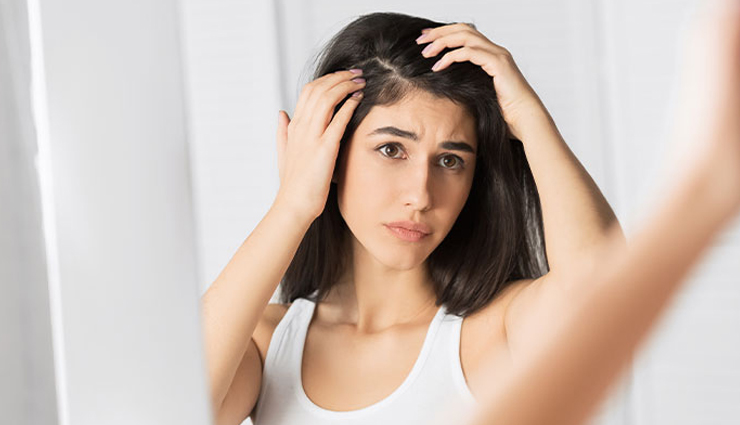
Itchy, flaky dandruff can ruin an amazing outfit you come up with and make a social gathering quite embarrassing. There are multiple reasons behind why you get dandruff and getting rid of it is really hard. Now, your first solution to this is to turn to an anti-dandruff shampoo, something loaded with chemicals that you wish would just burn away the flakes. But does it happen? Not really.
It takes ages before you find a shampoo that removes dandruff without ruining the hair. This is because there are different types of dandruff based on their root cause. Without targeting this cause, there’s no way that you’re getting rid of the flakes. So, let’s look into what can possibly be causing your dandruff problem and how to resolve it.
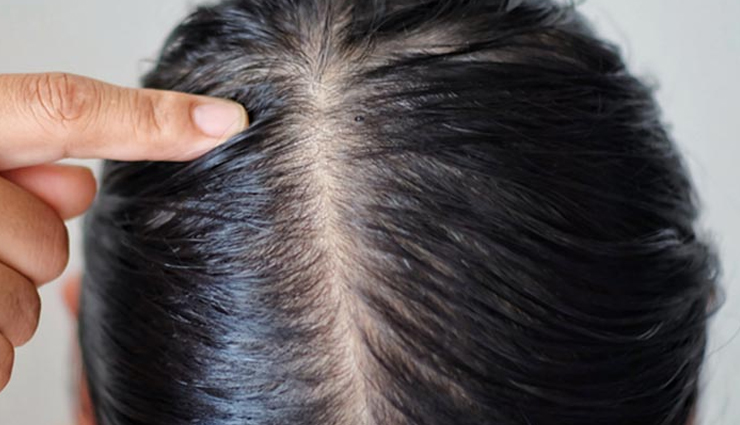
# Dry Skin
Dandruff due to dry skin is not really dandruff but just the skin on the scalp becoming really dry, irritating, and flaking off. This will appear as tiny, dry flakes and cause itchiness. The scalp is the same as the skin on the rest of the body it cracks in cold weather. Most of the time, if your scalp is dry, the rest of the body will also be dry. Common causes of such dry, flaky skin are cold, dry weather, old age, and health issues like contact dermatitis.
How To Treat
The best way to manage dry scalp is to use mild shampoos and moisturizing conditioners. Shampoos with natural ingredients like tea tree oil are also a good bet. Also, follow these habits to handle the flakiness in the long term:
- Completely wash off the shampoo every time.
- Do not use products that would cause oil buildup on your scalp.
- Practice stress management.
- Take cold or lukewarm head baths, never hot.
- Eat nutritious foods every day.
- Drink a lot of water and fresh fruit juices.
Oiling might nourish your hair to an extent, but it also causes dandruff by encouraging fungal growth. So, remember to not oil your hair for longer than 2 hours. Ensure you completely wash off the oil from the hair when you bathe. And, if the scalp reddens or becomes swollen and the flakes don’t go down, consult a doctor to figure out any underlying health issues.
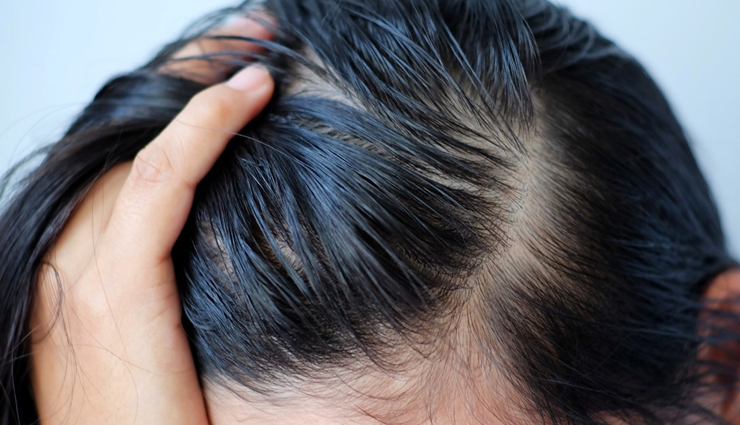
# Oily Skin Or Seborrheic Dermatitis
Seborrheic dermatitis or oily skin is a type of eczema and is the most common cause of dandruff, characterized by an oily, red, and itchy scalp. The reason your hair becomes oily is that the scalp produces too much sebum. If you don’t wash your hair regularly, this oil can combine with dirt and dead skin cells and lead to dandruff issues. In severe cases, dandruff can spread to eyelids, eyebrows, lips, and more. Seborrheic dermatitis is closely related to fungal growth. Hence, treating on time can prevent further infections.
How To Treat
Consult your doctor and obtain a medicated shampoo to get rid of dandruff. Regularly shampooing will clean the scalp, reduce oil build-up, and prevent fungal growth. Shampoos containing salicylic acid, resorcin, ketoconazole, selenium, and zinc or coal tar can help reduce dandruff.1 Complement the treatment with a few good habits:
- Shampoo your hair frequently.
- Make a dry shampoo using essential oils at home to keep your scalp dry.
- Eat healthy carbs and fats and follow a nutritious, balanced diet.
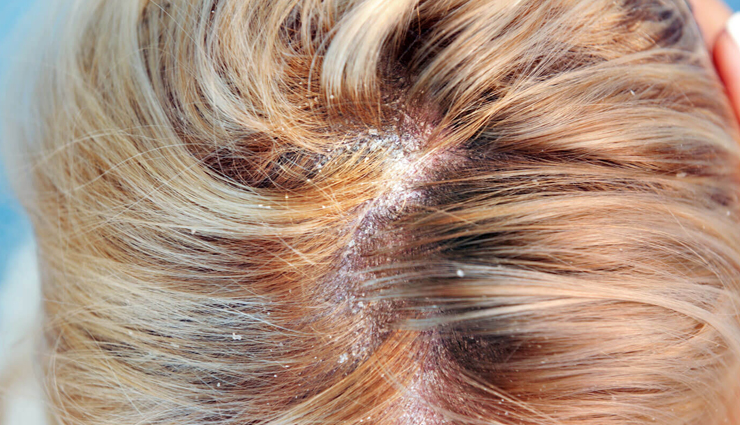
# Fungal Growth
Not washing your hair regularly, leaving hair product residue on the scalp, an oily scalp, and a pH imbalance can all lead to the growth of a fungus called Malassezia. This fungus reproduces faster than usual and causes irritation on the scalp.
How To Treat
- Choose shampoos that have no sulfate or get a medicated one. Shampoos with zinc pyrithione, salicylic acid, and selenium sulfide can also reduce fungal growth.
- Stay clean! Wash your hair frequently and thoroughly.
- If you have an oily scalp, take the up the measures mentioned earlier.
- Eat healthily.
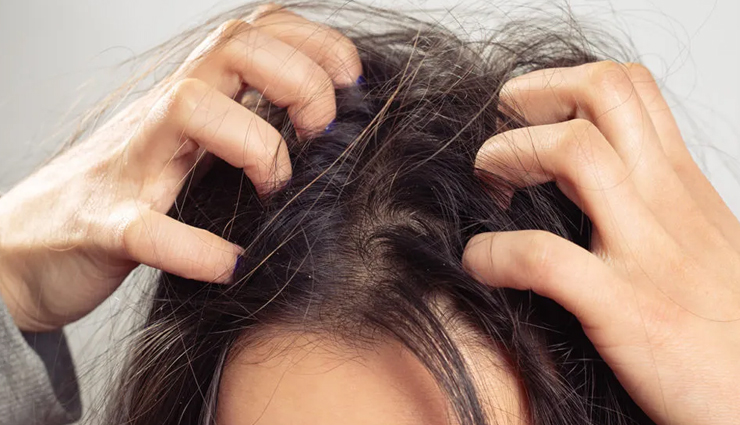
# Product Buildup
If you’re someone who loves styling their hair, trying on different gels and oils, dandruff due to product buildup is very likely. Combined with oily scalp and fungal growth, it is an extremely common cause of dandruff. In such cases, dandruff doesn’t look flaky. Instead, it looks like a clump of off-colored, sticky, itchy dirt and can cause excessive hair loss.
How To Treat
- Use the right hair care products.
- Stick to natural ingredients as much as possible.
- Wash your hair regularly.
If the symptoms persist, visit a doctor.
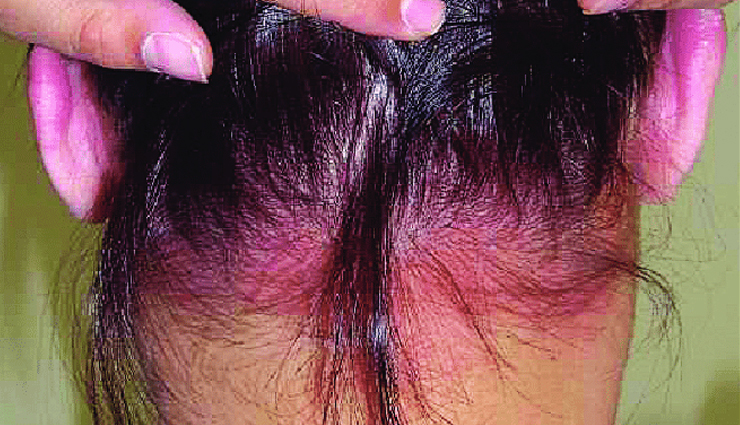
# Contact Dermatitis
Contact dermatitis is when your scalp gives an allergic reaction to hair care products. Certain shampoos, oils, or gels can irritate your scalp, cause it to redden, result in itchiness, and produce dandruff flakes.
How To Treat
Figure out what you’re allergic to and find alternative products. Use natural, mild ingredients as much as possible.





